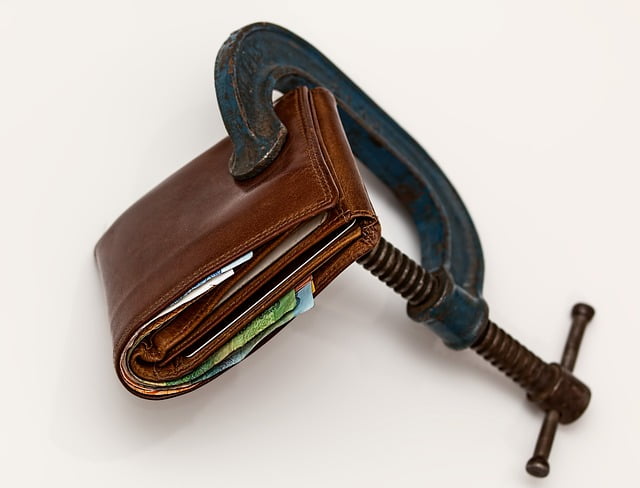What is a Recession?
A recession is a period of economic decline that typically lasts for at least two consecutive quarters or six months. During this time, economic output decreases, resulting in lower consumer demand, job losses, and reduced business activity.
Economic indicators like GDP growth, unemployment rate, and consumer confidence usually recognize a recession.
Recessions can damage economies, leading to business closures, higher unemployment, and lower consumer spending.
They can also lead to high debt levels as businesses and households struggle to make ends meet. While the impact of recessions can vary from country to country, they can have a lasting effect on the global economy.
How to Prepare Financially for the 2023 Recession?
As the 2023 recession looms on the horizon, there are several steps you can take to prepare financially. The first step is to create an emergency fund.
An emergency fund is a special savings account for unexpected costs, like medical bills, repairs, or loss of work.
Your emergency fund should be 3 to 6 months of your living costs, based on your income and expenses. The next step is to manage your debt. Pay off high-interest debt, e.g., credit card debt, swiftly.
If you can’t pay the total amount, pay the minimum at least to avoid extra interest. Try to limit your borrowing during the recession, as this will help you avoid getting into more debt.
Building an Emergency Fund
Building an emergency fund is crucial in preparing for the 2023 recession. An emergency fund should cover unexpected expenses, such as medical bills, repairs, or job loss.
Save 3 to 6 months of living expenses for your emergency fund, based on your income and expenses.
To start building your emergency fund, you should set aside a certain amount each month. This can be done by setting up an automatic transfer from your checking account to your savings account.
You can look for ways to cut expenses, such as reducing your grocery bill or cutting back on entertainment expenses.
Managing Debt
Managing debt is an essential step in preparing financially for a recession. High-interest debt, such as credit card debt, should be paid off quickly.
Pay the minimum if you can’t pay it in full to avoid extra interest. You can limit your borrowing during the recession, as this will help you avoid getting more debt.
If you have multiple debts, it can be helpful to create a budget to track your expenses and payments. This will help you prioritize debts and ensure that you are making timely payments.
Look for ways to decrease interest rates, like transferring credit balances to a card with low interest or refinancing loans.
Investing Wisely
Investing wisely is another critical step in preparing financially for a recession. During a recession, it is essential to be mindful of the risks associated with investing.
Investing in stocks can be risky, as the stock market can be volatile during a recession. Additionally, it is crucial to diversify your investments to spread out the risk.
Bonds can be a safer option during a recession, as they are less volatile than stocks. Additionally, investing in real estate can be a good option, as it can provide a steady source of income. Pay attention to economic changes to make intelligent financial decisions.
Diversifying Your Investments
Diversifying your investments is a smart way to reduce risk and maximize your overall return on investment. Diversifying means investing in different asset classes, such as stocks, bonds, real estate, and cash.
By having a variety of investments, you are less likely to be affected by changes in any particular market. When one asset class does well, another may not, so diversifying ensures you have a good balance of potential returns.
Also, having multiple income sources reduces the risk of having all your eggs in one basket. Multiple investments can guard against market volatility and improve your chances of reaching your financial objectives.
Protecting Your Assets
Protecting your assets is a critical part of the financial plan for a recession. Saving your money, property, and other possessions from potential risks. You can do it through insurance policies, diversifying investments, and establishing trusts.
Creating a current will and estate plan is essential to safeguarding your assets if you die or become disabled. Additionally, creating a budget and living within your means can help prevent exceeding your finances and putting your assets at risk.
It is important to practice good cyber security habits to protect your identity and financial information from theft or fraud. You can ensure your financial security in the long run by taking the necessary steps to protect your assets.
Staying Informed
Staying informed is another vital part of preparing for a recession. Keeping informed of economic news can assist in making wise investments.
It is highly advisable to stay informed about government policies, as these can significantly impact the economy.
It is also essential to stay informed about potential opportunities during a recession. For example, a recession can be an opportunity to start a business, as there may be less competition in the market.
It is advantageous to invest in stocks now, as they can bring returns when the market improves.
Preparing financially for the 2023 recession is essential in ensuring long-term financial security. Create an emergency fund, manage debt, invest carefully, and stay informed about protecting yourself during economic uncertainty.




